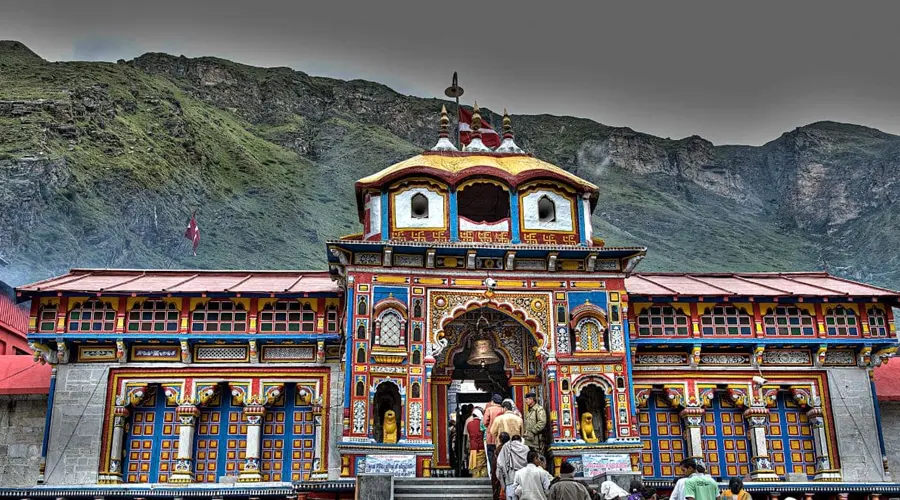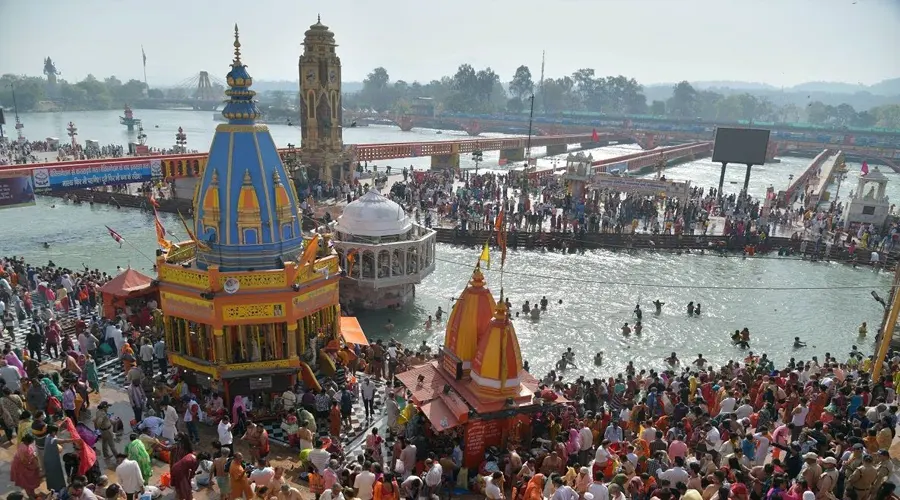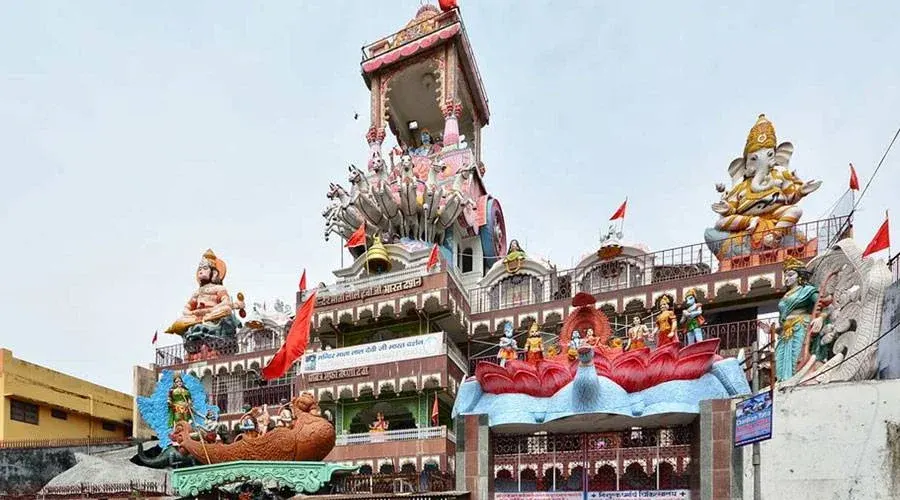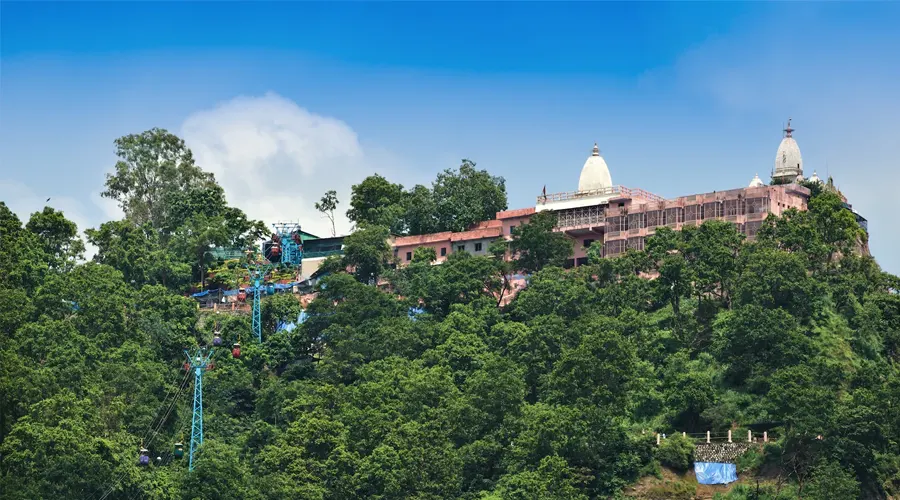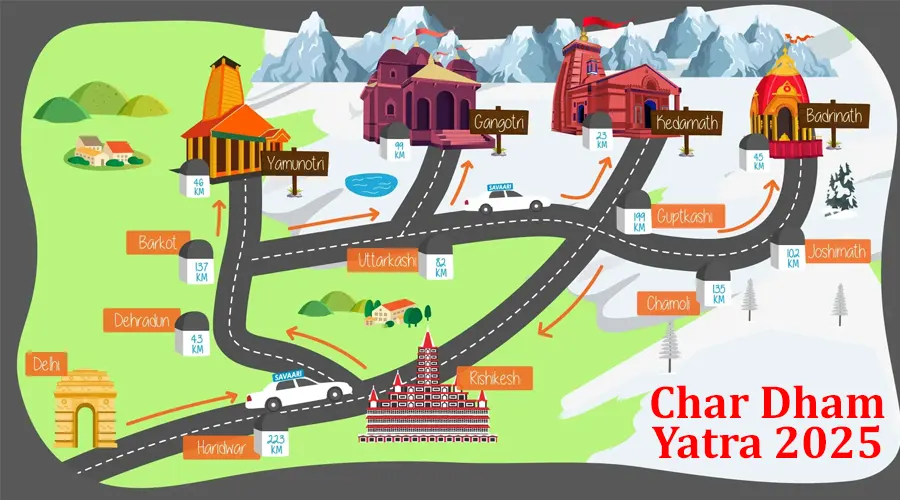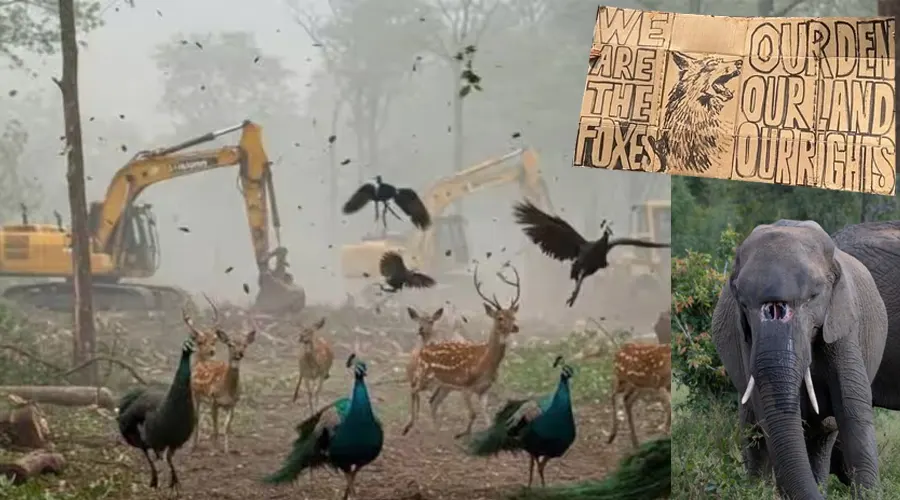Lakshman Jhula, Uttarakhand
The Lakshman Jhula is a famous hanging bridge across the river Ganga that connects two villages, Tapovan in the Tehri Garhwal district and Jonk in the Pauri Garhwal district. Located 5 kilometers to the northeast of the town of Rishikesh in the Indian state of Uttarakhand, the entire bridge is made up of iron, is 450 feet long, and is situated at the height of 70 feet from the river. The Lakshman Jhula is well-known amongst tourists because it is believed that Lord Lakshman, the younger brother of Lord Rama, had crossed the river Ganga at this same site, where the bridge now majestically stands for all to see.
The construction of the bridge was completed in the year 1929, and presently, the Lakshman Jhula acts as an adjoining bridge across the river, along with the old route to the sacred shrines of Badrinath and Kedarnath. In the present-day scenario, the Lakshman Jhula is visited by thousands of tourists each year. Grand temples and famous markets have sprung up in the vicinity, and the entire area is now a particularly renowned attraction in entire Rishikesh.
Important places around the Lakshman Jhula include the Terah Manzil temple, the Lakshman temple, and the Ram Jhula and the entire area resonates with the sounds of the enchanting mantras and shlokas from the temple.
History
As per mythological tales, it is believed that at one point in time, Lord Lakshman, brother of Lord Rama, crossed the river Ganga at the same spot where the present bridge is now constructed. Legend has it that Lord Lakshman crossed the river using just two ropes. To honor this brave act of Lord Lakshman, a 284 feet long hanging rope bridge was built and came to be known as the Lakshman Jhula'.
Until 1889, this particular bridge was used to cross the river. Unfortunately, the bridge was washed away in the floods of October 1924. Following this, the eroded jute bridge was replaced by an iron bridge along the same path in 1939. The name of the bridge was not changed, and now the iron Lakshman Jhula stands majestically across the river Ganga.



